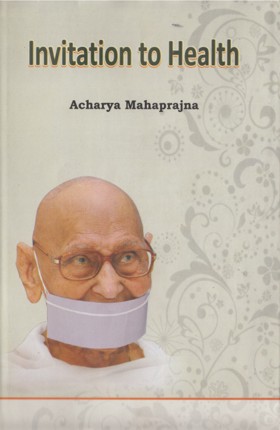Religious Harmony And Freedom Of Thought
The fundamental elements of religion are common to all. Modes of worship may be different; but religion cannot be different. Religion is truth. Truth cannot be two. It will be one for all. Before Hindu society Vedic, Jain and Buddhist— these three main conceptions of religion have been present. All the three have their own internal sectarian differences or differences in modes of worship but on the basic conception of religion they come to a common point. Lord Mahāvīra said, "Appana sacca mesejja metin bhuesu kappae" i.e., "Search for truth yourself and have friendship with all". The same thing was said by Śankarācārya,
Mokṣasādhanasāmagryām, bhaktireva garīyasī
Svarūpānusandhānam, bhaktirityabhidhīyate.
i.e., among the means of moksa bhakti alone is the best/ highest. To search for the real nature of the self is called bhakti.
Searching the truth by one's own self and realizing one's true nature these are two different things in words but not so in their meaning.
Realm of thought
The age of today is an age of comparative study. Philosophical thoughts are being studied comparatively. Therefore, the bondages of faith are shattering and the truth covered up under the veil of language and definition is getting revealed.
Hindu society has been very liberal in the field of thought. It has never compelled any one to accept its thought; did not take resort to sword. It was not aggressive. Had there been no conceptions of class discriminations in it, it would have been an imitable society in the world. In today's scientific age of changing thoughts and changing conceptions it is necessary for the Hindu society to adopt a new standpoint.
Platform for harmony
To have sectarian differences is a process of evolution of thought. It cannot be stopped and should not be stopped. If there is a view point of harmony, then there is difference but no opposition. Contemporary age has understood this truth. Despite differences in thought we are proceeding from opposition to non-opposition or concord and this is the direction of sarvadharma (unity of all religions) From equal respect (samabhāva) good feelings (sadbhāva) are enhanced and from good feelings equal respect is enhanced. For the enhancement of both there is a need for a platform of coordination. Vishva Hindu Parishad is discharging this responsibility and it is a matter of happiness.
Religious harmony: five principles
For good feelings and harmony tolerance is necessary. In its absence difference of opinion turns into difference of mind (manabheda). The five principle-programme of religious harmony presented by Acharyashri Tulsi is very useful. It is:
- Positive/constructive policy is adopted. One's opinion is propounded, but no aspersions be made on others either orally or in writing.
- There should be tolerance towards the thoughts of others.
- There has not to be spreading of feelings of hatred and despise for other sect or religion.
- There has not to be any force for conversion to other sect/religion.
- There should be collective endeavour for life long adherence to fundamental elements of religion like non-violence, truth, non-stealing, celibacy, and non-acquisition.
Problem is that of intolerance
Hindu society is divided into many sects. If there is a bridge of coordination among them then plurality of sects is not a problem. Problem is that of intolerance. It is necessary to have our effort in the direction of reducing it. In this task the responsibility of religious preceptor is more than that of the follower. As it is for the preservation of religion the present-day education is not conducive. There is no natural interest of today's educated youth in religion, and when he observes the quarrels and conflicts of religious sects then whatever little interest he has that also vanishes. Therefore, on this subject our attention should be concentrated.
A question worthy of consideration
Today it seems that Hindu society is less united, and there is more disintegration in it. One of its reasons is its huge number but there is another reason and that is indifference. If someone undergoes religious conversion out of freedom of thought then it should be regarded as pardonable but is it not a matter of worry that someone does so on account of indifference, disregard or lack of brotherhood of Hindu society?
Some centuries ago Hindus were in some countries only. Now they are spread in all corners of the world. Their area has expanded. With the expansion of area their quality should also increase. The Vishva Hindu Sammelan (World Hindu Conference) to take place in London (26th August, 1989) will be able to prepare the background for Sarvadharma samabhāva, samanvaya and sangathana (equal respect, coordination and solidarity for all religions. To imagine this itself is pleasant.
 Acharya Mahaprajna
Acharya Mahaprajna
